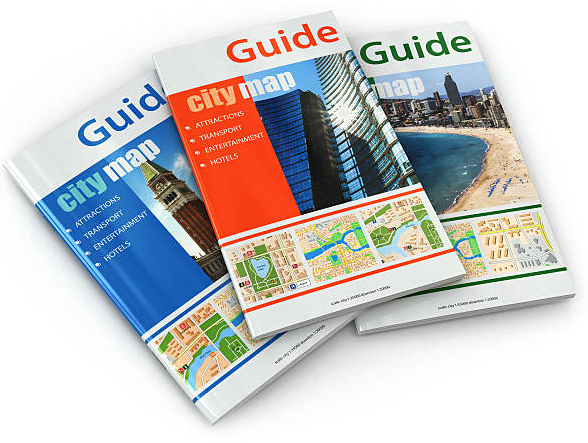
Sports Tourism Rebounds After Pandemic Recession
July 13, 2024
This Little-Known Island Has Become One of the Mediterranean’s Top Tourist Destinations
July 24, 2024The New York Times published an article last week titled “New Frontier for Travel Scammers.” Among them are images of AI-generated travel guides suddenly pouring into Amazon. The travel writers behind them? They are not the seasoned travelers described in the author’s bio. Instead, they are robotic word masters created using generative artificial intelligence.
While you might think you can tell the difference between AI-generated content and real content, what is sold to scammed travelers is hundreds of seemingly genuine reviews. Most guides will comment on the experiences and help of these “travel writers”. Reviewer? You guessed it – so are artificial intelligence robots.

Why Is AI Spoofing Important in the Travel Industry?
For now, AI could become an inevitable part of our travelers’ lives. After all, companies like Matador Network even use AI tools to help people plan their trips through WhatsApp.
However, this does not mean that you have to stand by and accept deception. Instead, it’s important to learn how to distinguish between fact and fiction.
It’s important to learn to listen to genuine travelers who have experienced everything you could wish for.
Of course, generative AI guarantees convenience and accessibility. But it also comes with great risk, especially when eager adventurers like you spend their hard-earned money on guides that advertise as full of “expert” travel tips. Instead, they are filled with copied and pasted information that you might find on Wikipedia.
How AI Travel Guides Are Made
How could a bunch of crooks, you might ask, create a complete travel guide with author photos and profiles, well-designed book covers, and all positive reviews?
It’s all artificial intelligence. Modern AI tools can easily create fake images of people who may or may not exist.
With a few tips, they can generate compelling resumes that tell the author’s “20 years of visiting distant lands.” Mix in some stock photos, quick book cover templates on Canva, and direct publishing tools, and voila, and voila, and voila, you get a fake travel guide to sell to the humble traveler.
At least, that’s what the New York Times investigated several AI-powered travel guides.

What a Fake Ai Travel Guide Looks Like
A classic example comes from Mike Steve (presumably a remake of the famous travel guide writer Rick Steves), a “famous European travel writer” who has traveled to more than 40 countries.
His guide, France Travel Guide: Discover the Beauty, Culture, and Charm of France through an In-House Guide, sells for $16.99 and has a 37.4-star rating out of 4 reviews. After some real critics get their hands on a copy, they find that it doesn’t contain a real itinerary or any useful information at all (other than letting readers know that they actually speak French in France; Thanks for the tip! )。
Apart from the fact that the text of the guide was clearly fake, how did The Times discover that it was a fake guide?
First, they ran some copies through Originality.ai. Not surprisingly, every piece of text entered is 100% AI-generated. Then they carefully looked at the “author” – his photo and resume. Zooming in on the photo reveals some strange AI anomalies, such as strange growths and strange clothes on his neck.
A quick Google search for “Mike Steve Travel Writer” found no other published work, nor traces of the city he lived in listed in the author’s bio.
How to Avoid Being Scammed by Fake Travel Guides
Take a look at AI-generated travel guides (and accompanying reviews) on Amazon and you’ll see why so many people are deceived. With AI content so compelling these days, how can you avoid being scammed?
The first step is to be wary of such common travel scams. Then, learn to research the companies and individuals you entrust to provide you with your travel experience. For example, if you find a travel guide online, research the authors.
Look for other published works in reputable travel publications or social media accounts where you can see them traveling to the places they wrote about.
When in doubt, stick to brands and people you know and trust. Trust National Geographic, Lonely Planet and Rick Steves to publish award-winning travel guides with expert support.
Finally, stay up to date with the latest travel news to ensure you’re always one step ahead of the scammers!



